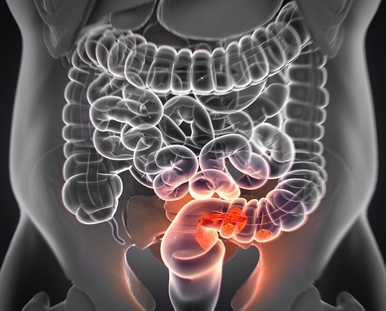 Colorectal cancer, or cancer involving the large intestine and/or rectum, is the third leading cause of cancer-related deaths worldwide. Surprisingly, it is a “preventable” cause of death and the risk can be lowered by lifestyle changes and annual health screening programs such as Functional Thermogram. In fact, a study clearly revealed that more than half of all colorectal cancer deaths can be easily prevented in USA alone yearly.
Colorectal cancer, or cancer involving the large intestine and/or rectum, is the third leading cause of cancer-related deaths worldwide. Surprisingly, it is a “preventable” cause of death and the risk can be lowered by lifestyle changes and annual health screening programs such as Functional Thermogram. In fact, a study clearly revealed that more than half of all colorectal cancer deaths can be easily prevented in USA alone yearly.
Apart from genetics, our environment plays a huge role in deciding how we live our lives. Additionally, diet and lifestyle are two major factors that modulate our wellbeing and can drastically affect our quality of life. The same algorithm works for colorectal cancer too. While this cancer has a genetic basis, it can be completely prevented with good lifestyle habits and careful dietary planning.
A report by the American Institute for Cancer Research (AICR) and the World Cancer Research Fund (WCRF) has recently proved that whole grains, such as brown rice, whole-wheat bread and oats, decrease the risk of colorectal cancer, while high intake of processed meats, such as hot dogs, increase the risk.
 The report also guides that having 3 servings of whole grains (90 grams each) on daily basis can reduce the cancer risk by 17 percent. This risk can be further lowered by eating other fiber-rich fruits and vegetables too. Particularly in fruits, those that contain high amount of Vitamin C are best in lowering colorectal cancer risk.
The report also guides that having 3 servings of whole grains (90 grams each) on daily basis can reduce the cancer risk by 17 percent. This risk can be further lowered by eating other fiber-rich fruits and vegetables too. Particularly in fruits, those that contain high amount of Vitamin C are best in lowering colorectal cancer risk.
Additionally, the role of physical activity is extremely important in this regard. The report concluded that healthy lifestyle changes, such as increased physical activity, can prevent 47% chances of developing colorectal cancer in US. This finding provides an explanation to why obese people, especially those with alcohol abuse history, develop this cancer more occasionally.
Processed meat, both beef and pork, is a huge no-no for living a cancer-free life. The report clearly states that consuming more than 500 grams of cooked meat each week is linked to high risk of colorectal cancer.
With precious knowledge at our disposal, it is necessary to take practical steps to lower the cancer risk optimally. It comes as a blessing that this cancer is quite preventable, and our diet alone can play a major role in doing so. A healthy lifestyle is mandatory to live a long, active and happy life, and the same stands true for colorectal cancer too.
Johanna Oosterwijk N.D.


